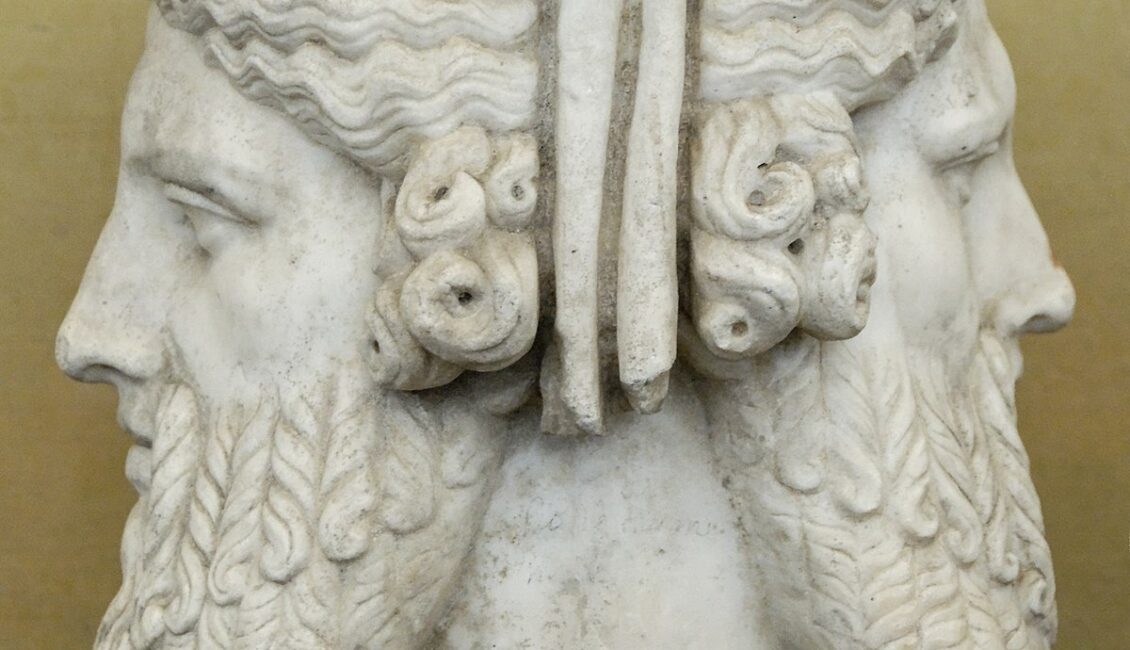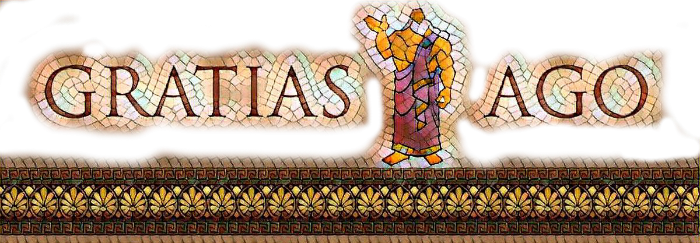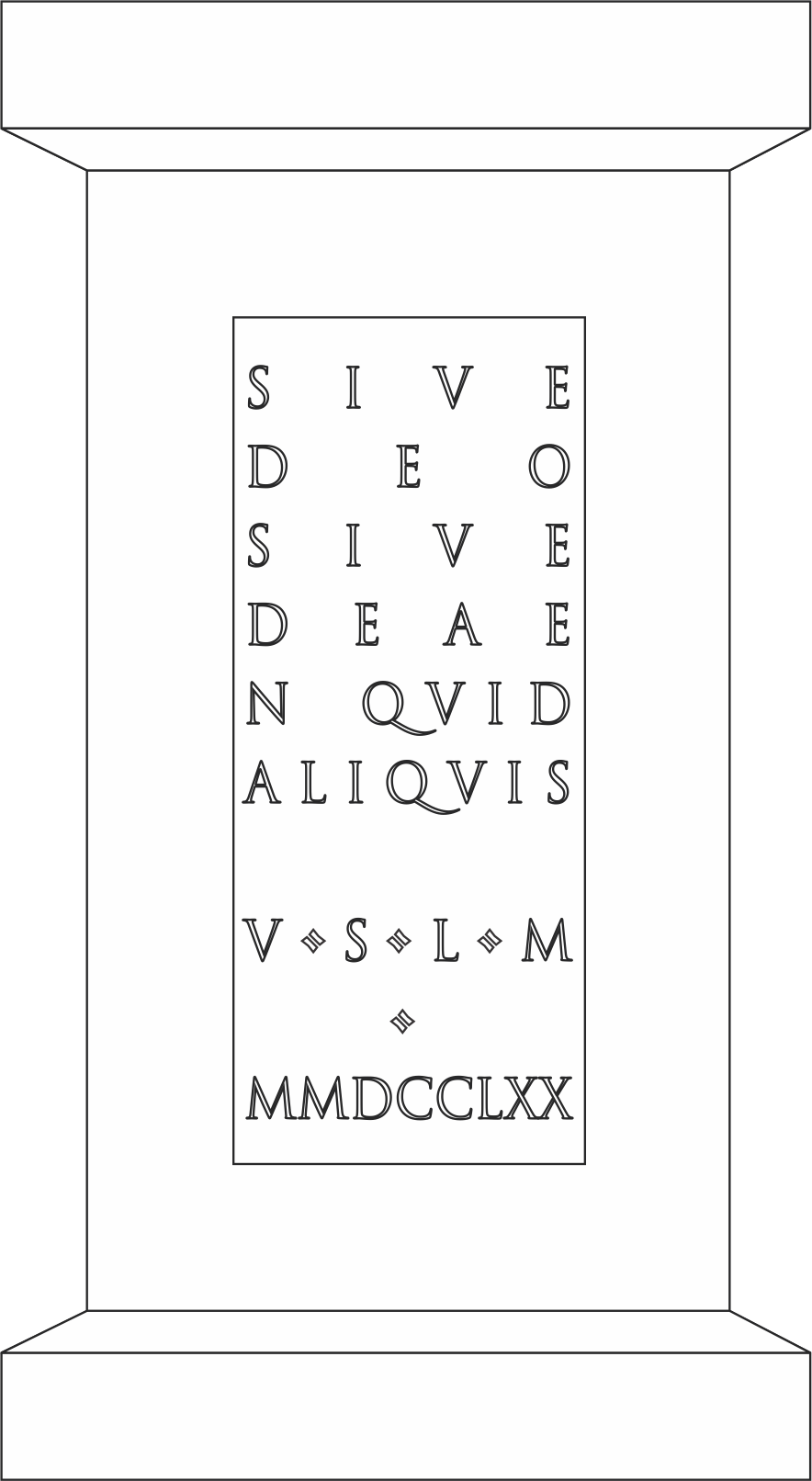
Janus, the Roman god of beginnings, transitions, and dualities, occupies a central place in Roman religious practice as the overseer of thresholds and time itself. Represented with two faces gazing in opposite directions—one toward the past and the other toward the future—Janus symbolizes the perpetual movement of life and the interconnectedness of all transitions, both physical and spiritual.
In contemporary practice, Janus is honored as the god who opens and closes the metaphorical doors of our lives, guiding individuals through new ventures, transformations, and moments of change. He presides over the passage of time, the cycles of the year, and the transitions between the known and the unknown. His sacred month, January (Ianuarius), marks the beginning of the Roman calendar, reflecting his role as the harbinger of renewal and new opportunities.
Janus’s dual nature embodies the balance between opposites: beginnings and endings, unity and division, chaos and order. Practitioners view him as a mediator who facilitates movement from one state to another while offering protection and guidance during periods of uncertainty. His blessings are invoked in rituals that mark new enterprises, travel, and the opening of ceremonies, where his presence ensures a smooth and harmonious start.
Through the worship of Janus, devotees find a source of strength and clarity in navigating the complexities of life. His dual gaze encourages reflection on the lessons of the past while embracing the possibilities of the future, fostering a sense of purpose and direction. As the guardian of thresholds, Janus continues to inspire reverence as a timeless figure of transformation and renewal.
Why worship Janus
Janus, the Roman god of transitions and beginnings, holds profound significance in guiding individuals through life’s inevitable changes. Worshiping Janus serves as a way to seek clarity, protection, and balance during moments of transformation, whether they involve new ventures, relationships, or personal growth.
Janus embodies the dualities that define human existence: past and future, endings and beginnings, chaos and order. His two faces, looking both forward and backward, symbolize his role as the mediator of time and space. By honoring Janus, worshippers are reminded to reflect on past experiences and use them as a foundation to embrace the unknown with confidence and wisdom.
As the guardian of thresholds, Janus is invoked to sanctify transitions, ensuring they are harmonious and auspicious. His blessings are sought at the start of new endeavors—be they journeys, rituals, or major life changes—to secure his protection and guidance. Janus’s role as the opener and closer of doors makes him a powerful deity for those seeking opportunities, closure, or the courage to move forward.
Worshiping Janus also fosters mindfulness of life’s cyclical nature, encouraging practitioners to embrace change as a natural and necessary part of growth. His presence offers reassurance during uncertainty, inspiring faith in the journey ahead. For modern devotees, honoring Janus is a way to connect with ancient wisdom, drawing strength from the enduring principles of balance, reflection, and renewal that he represents.
COLLEGIVM ARAE IANI
The Collegium Arae Iani is a modern organization devoted to the veneration and worship of Janus, the Roman god of transitions, beginnings, and dualities. Rooted in the traditions of Roman polytheism, the Collegium seeks to honor Janus as the guardian of thresholds and the mediator of past and future. Through its practices, the organization fosters a spiritual connection to this ancient deity while providing a community for those who resonate with his symbolism and guidance.





